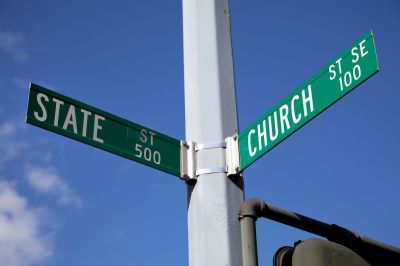
Much ink has been spilled since the IRS reinterpreted the Johnson Amendment, passed by then Senator Lyndon Johnson in 1954 as he was in the midst of a bitter reelection campaign in Texas, that it should not ban “communications from a house of worship to its congregation in connection with religious services” through “its usual channels of communication or matters of faith.”
The IRS statement only applied to “religious houses of worship” (churches, mosques, synagogues, temples, etc.), not other tax-exempt religious nonprofits. At the very least, however, it has been widely interpreted across the political spectrum, from right to left, that lax and episodic IRS enforcement of the pulpit endorsement role will now be reduced to virtual non-enforcement until further notice.
The most relevant question for pastors and churches, however, is how does this impact their churches, as contrasted with how it should impact their churches.
Having dealt with this issue as both a minister and a pro-life activist in every election cycle beginning in 1976, I am certain that thousands upon thousands of pastors and their congregational leadership are actively discussing and debating this IRS decision and how to respond to it.
Many readers who have not been privy to these private discussions over these years will be surprised to learn that a significant number of these ministers and/or their lay leadership have been, and remain, ambivalent about “endorsing” candidates. I personally know scores of pastors who have viewed the Johnson Amendment as a convenient excuse for avoiding endorsements that would cause division in congregations where no major political consensus existed.
Having said that, the IRS ruling is virtually “neutering” the Johnson Amendment for now and will result in significantly more pastors and congregations endorsing candidates in the 2026 election cycle.
The question is, should they do so? If they do so, do they do themselves more harm than good?
My answer to that question has been consistent over the years. First, the decision about whether to endorse a candidate for political office should be made by the individual congregation, not the government. All the restrictions concerning religious liberty in the Constitution’s First Amendment apply to the Federal Government, not individuals or churches. Consequently, I have advocated full repeal of the Johnson Amendment.
However, I do not favor pastors or churches endorsing political parties or political candidates. Why?
My first reason is that the church is supposed to be a divine, sacred institution, “the Bride of Christ.” Political parties are, by origin, nature, and design, exceedingly human institutions, full of foibles and faults. Political parties are human groups organized for the purpose of gaining and maintaining political power, with always mixed goals and bad motives. History informs us that political parties over time are seldom better than they have to be.
Churches are supposed to have divine motives and hopefully are always seeking heavenly, not earthly, motives. Churches that identify too closely with political parties will end up damaging their reputations as churches.
Churches need to consciously “flip the script” and be seeking out candidates and parties who endorse them and their principles as opposed to their endorsing candidates and/or parties.
Back in the summer of 1980 at the “National Affairs Briefing” in Dallas, which has been accurately described as the “coming out party” of the Religious Right, then presidential candidate Ronald Reagan brought down the house (thousands of attendees) when he said, “I know you can’t endorse me, but I’m here to endorse you!”
As a committed Baptist, I am strongly pro-life, pro-family, and pro-affirming and supporting freedom and human rights overseas as well as at home. I believe as Christians and as Americans, we need to be involved as salt and light in society and seek to have our government (the civil magistrate) at every level (local, state, national) be salt and light as well. (Romans 13:1-7)
I believe churches have the obligation to inform their members and others about where their faith would have them to be on the moral issues in society and why they need to pursue the righteous and oppose the unrighteous.
If more and more Christians and churches were doing that, we could envision a society in which both major parties were competing to promote the best ways and policies to be pro-life, pro-family, and pro-individual freedoms.
Let us just imagine Democrats and Republicans competing to produce the best policies to be pro-life and pro-family. I cannot help but believe that such a competitive environment would produce better and more productive answers than the current adversarial and combative environment is producing.
Dr. Richard Land, BA (Princeton, magna cum laude); D.Phil. (Oxford); Th.M (New Orleans Seminary). Dr. Land served as President of Southern Evangelical Seminary from July 2013 until July 2021. Upon his retirement, he was honored as President Emeritus and he continues to serve as an Adjunct Professor of Theology & Ethics. Dr. Land previously served as President of the Southern Baptist Convention’s Ethics & Religious Liberty Commission (1988-2013) where he was also honored as President Emeritus upon his retirement. Dr. Land has also served as an Executive Editor and columnist for The Christian Post since 2011.
Dr. Land explores many timely and critical topics in his daily radio feature, “Bringing Every Thought Captive,” and in his weekly column for CP.














